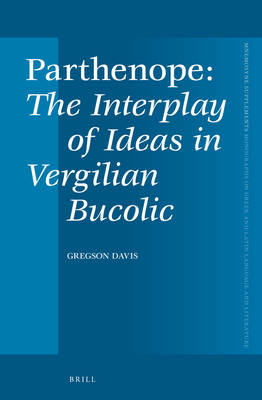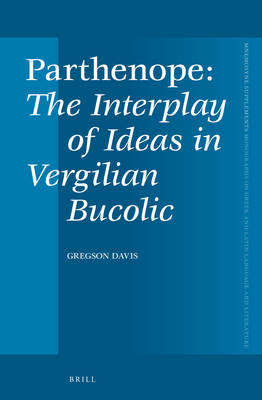
- Afhalen na 1 uur in een winkel met voorraad
- Gratis thuislevering in België vanaf € 30
- Ruim aanbod met 7 miljoen producten
- Afhalen na 1 uur in een winkel met voorraad
- Gratis thuislevering in België vanaf € 30
- Ruim aanbod met 7 miljoen producten
Zoeken
Omschrijving
This study of the Eclogues focuses on Vergil's exploration of issues relating to the subject of human happiness (eudaimonia)-ideas that were the subject of robust debate in contemporary philosophical schools, including the community of émigré Epicurean teachers and their Roman pupils located in the vicinity of Naples ("Parthenope"). The latent "interplay of ideas" implicit in the songs of the various poet-herdsmen centers on differing attitudes to acute misfortune and loss, particularly in the spheres of land dispossession and frustrated erotic desire. In the bucolic dystopia that Vergil constructs for his audience, the singers resort to different means of coping with the vagaries of fortune (tyche). This relatively neglected ethical dimension of the poems in the Bucolic collection receives a systematic treatment that provides a useful complement to the primarily aesthetic and socio-political approaches that have predominated in previous scholarship.
"This book is insightful and engaging; amatores of Vergil's Eclogues (scholars, students, or enthusiasts) will find the work accessible and profitable." Kristi Eastin, California State University, Fresno
"This book is insightful and engaging; amatores of Vergil's Eclogues (scholars, students, or enthusiasts) will find the work accessible and profitable." Kristi Eastin, California State University, Fresno
Specificaties
Betrokkenen
- Auteur(s):
- Uitgeverij:
Inhoud
- Aantal bladzijden:
- 192
- Taal:
- Engels
- Reeks:
- Reeksnummer:
- nr. 346
Eigenschappen
- Productcode (EAN):
- 9789004233089
- Verschijningsdatum:
- 27/08/2012
- Uitvoering:
- Hardcover
- Formaat:
- Genaaid
- Afmetingen:
- 155 mm x 235 mm
- Gewicht:
- 434 g

Alleen bij Standaard Boekhandel
+ 402 punten op je klantenkaart van Standaard Boekhandel
Beoordelingen
We publiceren alleen reviews die voldoen aan de voorwaarden voor reviews. Bekijk onze voorwaarden voor reviews.








